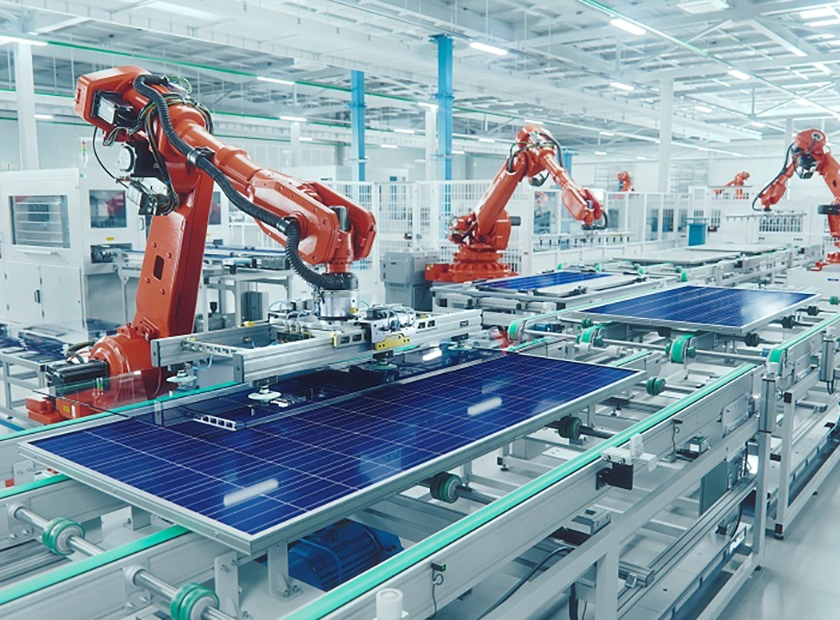Back to School with STEM-Limited-Time Event(Aug 6-Sep 5)

Printed Circuit Boards (PCBs) serve as the nerve center of modern electronic devices, playing a vital role in nearly every piece of electronic equipment on Earth. The performance of a PCB directly impacts a device's reliability, longevity, and information processing speed, making every stage of its design and manufacture critical. From initial concept design to final testing and delivery, PCB assembly is a multi-stage, complex process encompassing design, fabrication, component selection and placement, soldering, inspection, and testing. Throughout this journey, experience is undoubtedly the cornerstone for ensuring the success of the final product.
PCB assembly is not just a science; it's also an art. Like all fine arts and sciences, seasoned professionals with extensive experience often produce the most outstanding results. While theoretical knowledge is important, vast practical experience enables engineers to anticipate and resolve potential issues, thereby producing durable, high-quality PCBs. Some challenges can be met with established solutions, but more often, complex problems require the deep knowledge, skills, and keen intuition that only experienced engineers possess. This experience pertains not only to the reliability of the final product but also to the efficiency and speed of the entire production process, effectively reducing rework and failures, thus saving time and cost. For instance, in the UK market, particularly within the high-performance and specialized PCB sectors where it plays a significant role, the stringent demands for precision and quality make experienced teams indispensable assets.
Though the PCB industry has a long history, the pace of its technological advancement has never stopped. A look at the UK market in 2024 clearly reflects global trends. Demand for PCBs has been significantly driven by growth in key sectors such as automotive (especially for battery management systems and electronic control units in EVs), medical devices (like diagnostic equipment, implants, and wearables), and telecommunications (particularly with the rollout of 5G networks, including antennas and base stations). However, UK PCB assembly manufacturers in 2024 also faced tangible challenges, including shortages of skilled technicians and engineers, and production cost pressures due to inflation, rising energy prices, and increased costs of raw materials like copper.
Against this backdrop, experienced PCB assemblers demonstrate their strong ability to navigate market dynamics and embrace technological innovation. Automation technologies, such as Surface Mount Technology (SMT), and the application of Artificial Intelligence (AI) in quality control and predictive maintenance, are revolutionizing assembly line efficiency and precision. Concurrently, the miniaturization trend is increasingly prominent, with High-Density Interconnect (HDI) boards and flexible PCBs favored for their ability to integrate more complex circuitry into smaller spaces, widely used in 5G, wearables, and IoT. Many forward-thinking UK enterprises in 2024 actively adopted these new technologies, invested in automation equipment, and explored "nearshoring" or "reshoring" strategies to reduce reliance on long global supply chains, enhance responsiveness and cost-effectiveness, and address supply chain vulnerabilities exposed by global conflicts and the pandemic.
In the realm of PCB assembly, quality and reliability are enduring priorities. Experienced teams, through meticulous attention to detail and mature process flows, ensure that every PCB leaving the factory meets the highest standards. This is reflected not only in the final performance of the product but also in the smooth efficiency of the entire production process. Experience helps manufacturers optimize processes, reduce issues identified during inspection and testing, thereby shortening cycle times, lowering scrap rates, and ultimately achieving cost-effectiveness.
Choosing an inexperienced supplier might offer lower initial costs, but in the long run, potential quality issues and rework expenses can far exceed expectations. Conversely, while an experienced professional team's initial quote might be slightly higher, the high reliability, shorter lead times, and lower risk they bring often translate to greater overall value. Against the backdrop of generally rising costs in the UK in 2024, this cost-effectiveness, achieved through experience and technological optimization, becomes particularly crucial. Furthermore, sustainability has become an important measure of quality and responsibility, with UK manufacturers and assembly experts increasingly focusing on the use of eco-friendly materials (like lead-free solder and recyclable components) and green PCB technologies, committed to reducing e-waste and the environmental footprint of their operations.
Technological progress relies on the support of talent. Experienced professionals are not only highly skilled themselves but also bear the responsibility of knowledge transfer. Through training and mentorship, they pass on invaluable experience to industry newcomers, fostering the healthy development of the entire sector. In light of the labor shortages highlighted in the UK PCB industry in 2024, valuing existing skilled teams and ensuring continuous knowledge transfer is especially critical.
For clients, choosing an experienced PCB assembly partner means choosing peace of mind and trust. This trust is built on a partner's track record of success, their ability to solve complex problems, and their unwavering commitment to quality. Finding the right partner requires striking a balance between experience, price, flexibility, and delivery capabilities. A manufacturer with decades of industry experience, serving demanding sectors like aerospace, automotive, and healthcare – especially a UK-based company that has weathered the market volatilities of 2024 and continues to thrive – is undoubtedly better equipped to provide trustworthy, high-performance, and highly reliable PCB solutions.
Looking to the future, with the deepening development of technologies like electric vehicles, 5G communications, and artificial intelligence, the demand for advanced PCBs will continue to grow. The PCB assembly industry will continue to focus on automation, intelligence, miniaturization, and sustainable development. In an era of coexisting opportunities and challenges, PCB assembly enterprises that can leverage deep experience, actively embrace innovation, and always prioritize customer needs – much like those UK companies that successfully navigated challenges and seized opportunities in 2024 – will undoubtedly stand out in fierce market competition, leading the electronics manufacturing industry to new heights.